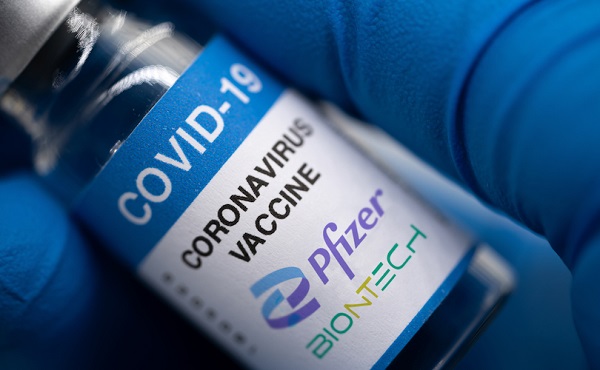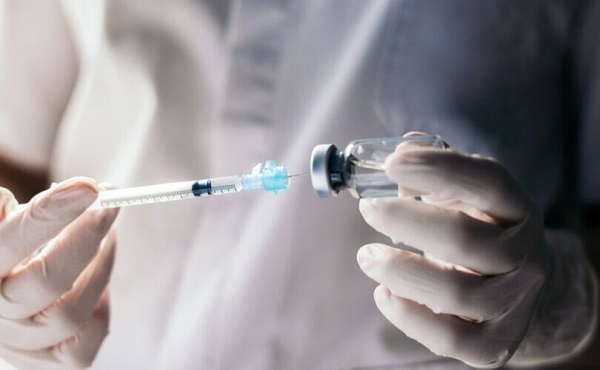COVID-19
Massive new study links COVID jabs to higher risk of myocarditis, stroke, artery disease

From LifeSiteNews
A new meta-analysis covering 85 million people found more evidence linking the COVID-19 vaccines to stroke, coronary artery disease, myocardial infarction, and arrhythmia.
A new meta-analysis covering 85 million people has found more evidence linking the COVID-19 vaccines to serious medical harms, although the authors appear to downplay the significance of their own findings in what one analyst calls the price of publication.
The study, published in the International Journal of Preventive Medicine, analyzes the findings of 15 previous studies covering almost 46 million vaccinated individuals and 40 unvaccinated ones. The effects overwhelmingly concern the Pfizer and AstraZeneca shots.
“Bayesian meta-analysis revealed a link between vaccines and CAD risk (OR, 1.70; 95% CrI: 1.11-2.57), particularly after BNT162b2 (OR, 1.64; 95% CrI: 1.06-2.55) and second dose (OR, 3.44; 95% CrI: 1.99-5.98),” the paper summarizes. “No increased risk of heart attack, arrhythmia, or stroke was observed post-COVID-19 vaccination. As the only noteworthy point, a protective effect on stroke (OR, 0.19; 95% CrI: 0.10-0.39) and myocardial infarction (OR, 0.003; 95% CrI: 0.001-0.006) was observed after the third dose of the vaccine.”
However, digging into the study’s actual data reveals a 70% increased overall risk of coronary artery disease (CAD); a 286% increased risk of myocardial infarction (MI) after second doses; a 240% increased risk of stroke after a first dose; and a 199% increased risk of arrhythmia after a first dose.
The authors conclude that the “association of COVID-19 vaccination with the risk of coronary artery disease should be considered in future vaccine technologies for the next pandemic,” but curiously argue that “(w)hile acknowledging potential side effects, our findings support the overall safety of the COVID-19 vaccine concerning cardiovascular complications such as myocardial infarction, stroke, and arrhythmia.”
Commenting on the study, McCullough Foundation epidemiologist Nicolas Hulscher argued that the discrepancy between the “actual data” and “how the authors spin it for publication” was to be expected, as “most will say anything to get the paper published” given the pervading biases among the medical establishment.
The data adds to a significant body of evidence behind ambivalence to the COVID-19 vaccines.
The federal Vaccine Adverse Event Reporting System (VAERS) reports 38,541 deaths, 220,494 hospitalizations, 22,247 heart attacks, and 28,908 myocarditis and pericarditis cases as of March 28, among other ailments. U.S. Centers for Disease Control & Prevention (CDC) researchers have recognized a “high verification rate of reports of myocarditis to VAERS after mRNA-based COVID-19 vaccination,” leading to the conclusion that “under-reporting is more likely” than over-reporting.
An analysis of 99 million people across eight countries published in the journal Vaccine “observed significantly higher risks of myocarditis following the first, second and third doses” of mRNA-based COVID vaccines, as well as signs of increased risk of “pericarditis, Guillain-Barré syndrome, and cerebral venous sinus thrombosis,” and other “potential safety signals that require further investigation.” In April 2024, the CDC was forced to release by court order 780,000 previously undisclosed reports of serious adverse reactions, and a study out of Japan found “statistically significant increases” in cancer deaths after third doses of mRNA-based COVID-19 vaccines, and offered several theories for a causal link.
In January, a long-awaited Florida grand jury report on the COVID vaccine manufacturers found that while only a miniscule percentage of the millions of vaccinations resulted in serious harm based on the data it had access to, such events do occur, and there are “profound and serious issues” in pharmaceutical companies’ review process, including reluctance to share what evidence of adverse events they did find.
All eyes are currently on President Donald Trump and his health team, helmed by Robert F. Kennedy Jr. as Secretary of Health and Human Services. As one of the country’s most vocal critics of the COVID establishment and vaccines more generally, his nomination brought hope that the second Trump administration will take a critical reassessment of the shots that the returning president has previously embraced, although most of Kennedy’s comments since joining Trump have focused on other issues, such as conventional vaccines and harmful food additives, and during confirmation hearings he called Operation Warp Speed an “extraordinary accomplishment.”
Trump has given mixed signals as to the prospects of reconsidering the shots and has nominated both critics and defenders of establishment COVID measures for a number of administration roles.
COVID-19
Biden admin put ‘anti-maskers’ on TSA no-fly list normally reserved for terrorists

From LifeSiteNews
Senior intelligence officers warned the Biden administration that putting individuals on the list for resisting mask mandates “is clearly unrelated to transportation security,” and that “TSA is punishing people for the expression of their ideas when they haven’t been charged, let alone convicted of incitement or sedition.”
The Biden administration placed some Americans who resisted mask mandates on a no-fly list typically reserved for suspected terrorists, an investigation has revealed.
As Fox News reported, the Department of Homeland Security (DHS) and the Transportation Security Administration (TSA) have uncovered that the Biden administration placed some Americans who had resisted mask mandates on a no-fly list, in addition to some individuals who were present at the Capitol on January 6, 2021.
Joe Biden’s TSA initiated “Operation Freedom to Breathe” in September 2021, even though the CDC had already relaxed its mask mandate six months prior. The operation placed 19 Americans on watchlists with various levels of restriction, with more than half being added to a no-fly list usually reserved for suspected terrorists.
Eleven of those individuals remained on the watchlists until the nationwide mask mandate, issued by the Biden administration, was lifted in April 2022.
“Biden’s TSA Administrator [David] Pekoske and his cronies abused their authority and weaponized the federal government against the very people they were charged with protecting,” Homeland Security Secretary Kristi Noem said in comments given to Fox News Digital.
“Biden’s TSA wildly abused their authority, targeting Americans who posed no aviation security risk under the banner of political differences,” she added. “President Trump promised to end the weaponization of government against the American people, and we are making good on that promise.”
The investigation by the agencies also revealed that the TSA, under Biden, placed about 280 individuals allegedly involved in the Capitol protests on January 6 on watchlists. Five of these individuals were put on the highest severity no-fly list.
Fox News Digital cites internal documents that show senior intelligence officers warned the Biden administration that putting individuals on the list for resisting mask mandates “is clearly unrelated to transportation security,” and that “TSA is punishing people for the expression of their ideas when they haven’t been charged, let alone convicted of incitement or sedition.”
One TSA intelligence officer expressed concern about placing individuals on watchlists who had been arrested at the Capitol on January 6. He said most people who were arrested “are technically curfew breakers,” and that “I hope we don’t end up adding them [to a watchlist] on just the arrest.”
The internal emails reveal that the TSA primarily relied on the George Washington University Program of Extremism academic database and social media to determine who would be placed on the watchlists, rather than the FBI or local police.
The investigation also revealed that some individuals were placed on no-fly lists despite not being present at the Capitol on January 6, due to bad intelligence from the FBI under Biden.
Noem said that the DHS will be “referring this case to the Department of Justice and for Congressional investigation.”
COVID-19
Second Massive Population Study Finds COVID-19 “Vaccines” Increase Risk of 6 Major Cancers

South Korea study of 8.4 million adults finds higher risks of overall, lung, prostate, thyroid, gastric, colorectal, and breast cancers — across both mRNA and viral-vector platforms.
About a month ago, the first-ever population cohort study reported increased cancer risks following COVID-19 vaccination. In Italy, nearly 300,000 residents were tracked for 30 months, showing that mRNA shots significantly increased the risk of overall cancer, breast cancer, bladder cancer, and colorectal cancer.
|
Now, a second—and far larger—population-based cohort study by Kim et al from South Korea has corroborated and expanded upon those findings. Drawing on a massive sample of more than 8.4 million people, this is one of the most powerful cancer-safety datasets ever analyzed.
The results are striking. After accounting for age, sex, comorbidities, income level, and prior COVID-19 infection, COVID-19 vaccination was linked to significant increases in multiple major cancers, with the signal consistent across all vaccine platforms, both sexes, and age groups:
Study Design at a Glance
- Design & data: Population-based retrospective cohort using the Korean National Health Insurance database (2021–2023).
- Population: 8,407,849 adults.
- Exposure: COVID-19 vaccination (analyzed overall and by platform: mRNA, cDNA, and heterologous schedules).
- Matching: Large-scale propensity score matching (1:4 vaccinated:unvaccinated for the main analysis; 1:2 within vaccinated for booster vs non-booster).
- Modeling: Multivariable Cox proportional hazards models (adjusted for age, sex, comorbidity index, income level, and prior COVID-19 infection), estimating hazard ratios (HRs) with 95% confidence intervals (CIs); analyses stratified by sex and age.
- Outcome window: 1-year incidence of overall and site-specific cancers post-vaccination.
Key Results — Cancers with Significant Increases (1-year follow-up)
- Overall cancer: HR 1.27 (95% CI, 1.21–1.33) → 27% higher risk of all cancers combined in vaccinated vs. unvaccinated at 1 year.
- Lung cancer: HR 1.53 (95% CI, 1.25–1.87) → 53% higher risk
- Prostate cancer: HR 1.69 (1.35–2.11) → 69% higher risk
- Thyroid cancer: HR 1.35 (1.21–1.51) → 35% higher risk
- Gastric (stomach) cancer: HR 1.34 (1.13–1.58) → 34% higher risk
- Colorectal cancer: HR 1.28 (1.12–1.47) → 28% higher risk
- Breast cancer: HR 1.20 (1.07–1.34) → 20% higher risk
Interpretation: An HR of 1.53 for lung cancer means that vaccinated individuals developed lung cancer at a rate 53% higher than matched unvaccinated peers, over the same one-year follow-up period. Similar interpretations apply to each cancer type.
By Vaccine Platform
- cDNA vaccines (AstraZeneca type): linked to higher risks of thyroid, gastric, colorectal, lung, and prostate cancers.
- Overall cancer HR 1.47 (95% CI 1.39–1.56) → 47% higher risk
- mRNA vaccines (Pfizer/Moderna): linked to higher risks of thyroid, colorectal, lung, and breast cancers.
- Overall cancer HR 1.20 (95% CI 1.14–1.26) → 20% higher risk
- Heterologous (mixed schedules): linked to higher risks of thyroid and breast cancers.
- Overall cancer HR 1.34 (95% CI 1.21–1.48) → 34% higher risk
Interpretation: The elevated cancer risks were not confined to one vaccine platform. Whether adenoviral-vector (cDNA), mRNA, or mixed schedules, each vaccine type was associated with a measurable increase in overall cancer — and each had specific cancer sites driving the signal. In other words, no vaccine technology was free of cancer risk in this dataset.
Booster-Dose Analysis
- Gastric cancer: HR 1.23 (p = 0.041) → 23% higher risk with boosters
- Pancreatic cancer: HR 2.25 (p < 0.001) → 125% higher risk with boosters
Interpretation: Booster doses were associated with notably higher risks of gastric and pancreatic cancers. For pancreatic cancer, the risk more than doubled in boosted individuals.
Overall Cancer Trends/Sex & Age Stratification
- Overall cancer: Incidence was higher in the vaccinated across every demographic group.
- Women showed the highest relative burden, with 48.4 per 10,000 vaccinated vs. 38.2 per 10,000 unvaccinated at one year.
- Elderly adults (≥75 years) carried the greatest absolute burden, at 119.9 per 10,000 vaccinated vs. 91.7 per 10,000 unvaccinated.
- Younger adults (<65 years) also experienced a clear overall increase, despite lower baseline rates.
- Site-specific patterns:
- Men: elevated risks for gastric and lung cancers
- Women: elevated risks for thyroid and colorectal cancers
- Under 65 years: stronger signals for thyroid and breast cancers
- ≥75 years: markedly higher risk of prostate cancer
Interpretation: Both the overall and site-specific results show a consistent pattern — every demographic group experienced elevated cancer risks, though the type and absolute burden varied. Women and the elderly were hit hardest, but no population segment was spared.
Taken together, the evidence is now impossible to ignore. The only two population-level cohort studies ever conducted on COVID-19 vaccination and cancer — one in Italy and one in South Korea — have both found major increases in cancer risk. The Italian study (≈300,000 people, 30-month follow-up) identified significant elevations in overall cancer, breast, bladder, and colorectal cancers. The South Korean study (8.4 million people, 1-year follow-up) confirmed and expanded these findings, documenting increased risks of overall cancer plus six site-specific cancers (lung, prostate, thyroid, gastric, colorectal, and breast).
Critically, the signal was observed across all vaccine types — both mRNA and viral-vector (cDNA) shots — and in every demographic group analyzed. In plain terms: both major COVID-19 vaccine platforms appear to be carcinogenic
With two independent national datasets converging on the same conclusion, governments, regulators, clinicians, and researchers must confront a sobering reality: nearly 70% of the global population has been injected with a carcinogenic product. The evidence demands immediate market withdrawal of these products.
At the McCullough Foundation, we are deeply investigating both the molecular mechanisms and the population-level data linking COVID-19 vaccination to cancer. We are currently preparing several new studies to expand this critical line of evidence. This work requires substantial time, expertise, and resources, and we ask for your support in funding this urgent research: mcculloughfnd.org/products/
Epidemiologist and Foundation Administrator, McCullough Foundation
Support our mission: mcculloughfnd.org
Please consider following both the McCullough Foundation and my personal account on X (formerly Twitter) for further content.
FOCAL POINTS (Courageous Discourse) is a reader-supported publication.
To receive new posts and support my work, consider becoming a free or paid subscriber.
-

 National16 hours ago
National16 hours agoCanada’s birth rate plummets to an all-time low
-

 Agriculture1 day ago
Agriculture1 day agoCarney’s nation-building plan forgets food
-

 Fraser Institute1 day ago
Fraser Institute1 day agoAboriginal rights now more constitutionally powerful than any Charter right
-

 Alberta1 day ago
Alberta1 day agoAlberta puts pressure on the federal government’s euthanasia regime
-

 Business17 hours ago
Business17 hours agoElon Musk announces ‘Grokipedia’ project after Tucker Carlson highlights Wikipedia bias
-

 Crime15 hours ago
Crime15 hours agoPierre Poilievre says Christians may be ‘number one’ target of hate violence in Canada
-

 Red Deer1 day ago
Red Deer1 day agoThe City or Red Deer Financial Troubles: The Role of Good Governance, Effective Policies and Key Performance Metrics.
-

 Business2 days ago
Business2 days agoDemocracy Watch Drops a Bomb on Parliament Hill











